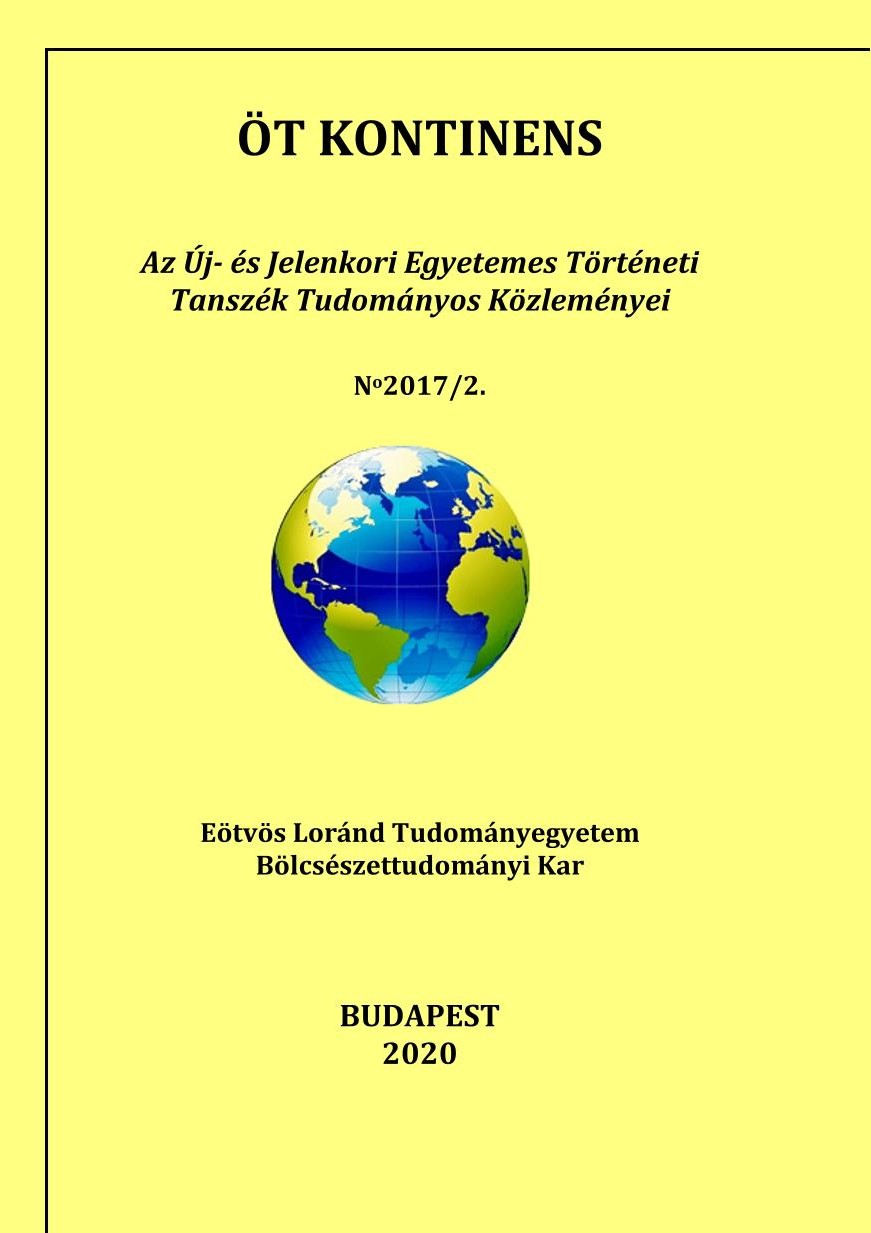Woodrow Wilson's effect on the emergence of 'modern' American media
Woodrow Wilson's effect on the emergence of 'modern' American media
Author(s): Gergely NagySubject(s): Cultural history, Media studies, Political history, Pre-WW I & WW I (1900 -1919)
Published by: Eötvös Loránd Tudományegyetem, Új-és Jelenkori Egyetemes Történeti Tanszék
Keywords: Woodrow Wilson; world war one; propaganda; media; 1912’s campaign; 1916 presidental election; Committee on Public Information; US and the League of Nations;
Summary/Abstract: The First World War brought change in politics that still have an effect today. The United States, abandoning it's neutrality doctrine, joined the war on the old continent. The President of the United States was Woodrow Wilson who set the goal in 1915 that after the end of the war, the US should become a leader in international politics. To achieve this, the century-old civic attitude of neutrality had to be transformed into a bellicose attitude. Wilson knew that this can be done using modern press and propaganda. In the early 20th century modern telecommunications began to play a more prominent role. The press had access to mass of people hitherto unreached, posters were popular and the motion picture revolutionized the industry. Woodrow Wilson recognized early in his career that in the future of politics, news and propaganda would be the key. He campaigned in 1912 using the press, posters and public speeches. Wilson utilized the media and propaganda after becoming president, and also used them to achieve US wartime goals. The Committee on Public Information (worlds first propaganda ministry) and intelligence service was founded under his administration. By the end of the decade these spanned the entire country and to this day have an effect on the political life of the United States.
Journal: ÖT KONTINENS
- Issue Year: 2017
- Issue No: 2
- Page Range: 107-121
- Page Count: 15
- Language: English

